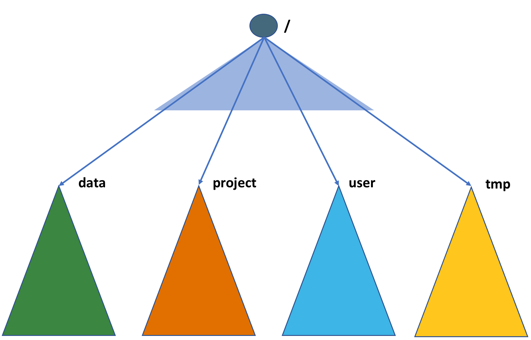Namespace view in a federation
Each of the multiple NameNodes in a federation has its own namespace. The NameNodes share the DataNodes of the cluster. Using ViewFs, you can create a cluster namespace view that is similar to a namespace in a cluster without support for federation.
Consider a federation with namespace volumes where each volume contains data distinct
from that of others. For example, a federation containing namespace volumes such as
/data, /project, /user, and
/tmp. Using ViewFs, you can create a cluster namespace view that
defines mount points for the namespace volumes at the root level or below. The following
figure shows a mount table for the namespace volumes /data,
/project, /user, and /tmp:

core-site.xml file, as shown in the following
example:<property>
<name>fs.default.name</name>
<value>viewfs://clusterX</value>
</property>viewfs:// scheme in the URI
is the mount table name. For easier management of the federation, you should consider
specifying the cluster name as the mount table name. In your Hadoop environment, ensure
that the configuration files for all the gateway nodes contain the mount tables for all
the clusters such that, for each cluster, the default file system is set to the ViewFs
mount table for that cluster. | Note |
|---|---|
After setting the default file system to the ViewFs
mount table for a given cluster, you must remap any directory paths mounted earlier
to point to the corresponding namespaces that contain those directories. |

